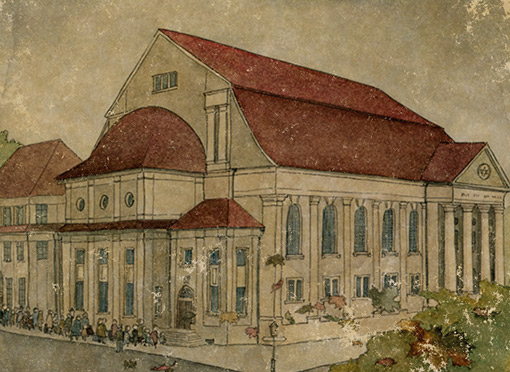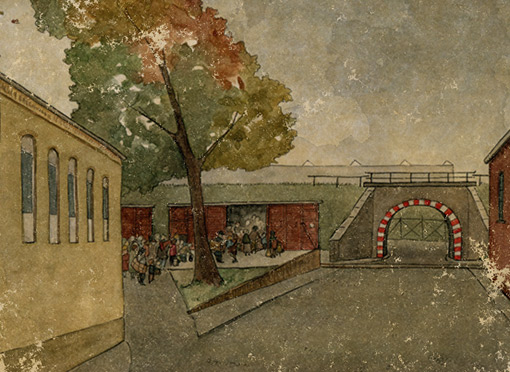 |
 |
This audio walk is guiding you straight through Berlin Moabit.
You are walking along one of the historic routes of deportation that led from the former synagogue, misappropriated as collection camp, to the former goods railway station where approx. 30,000 Jews were deported to concentration camps and ghettos.
This is how it works:
Jizchak Schwersenz worked as a teacher for “Youth Alijah”, founded in May 1938:
“As a staff member of the Reich Association of Jews, once a day I would take food to the collection camp in Levetzowstrasse together with an “Aryan” driver. The food was delivered in 50-litre tubs and handed out to people in bowls. I would often stand in front of the building and look at the golden letters with the words of Isaiah: “House of Israel, come, let us depart in the light of God” and thought that this line had come true in a completely different sense: Departing to the East for extermination.”


